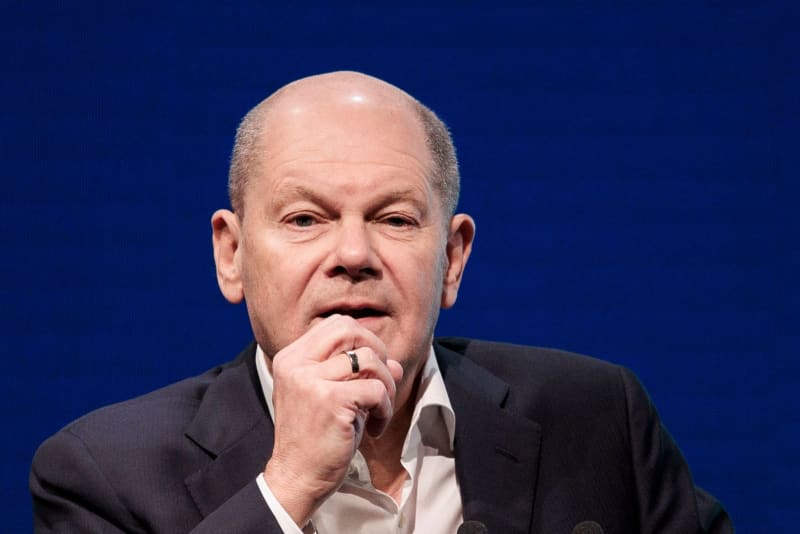Following the recent collapse of Germany’s center-left coalition government, Chancellor Olaf Scholz is set to hold discussions with opposition leader Friedrich Merz at the Chancellery, aiming to navigate the political landscape until a new election can be organized. Scheduled for Thursday at noon, this meeting will focus on the immediate future of governance in Germany. Scholz has proposed a vote of confidence in the Bundestag, Germany’s lower house, on January 15, following which he plans to call for early federal elections to occur by the end of March. This timeline, however, has been met with resistance from Merz, who argues that the proposed dates are too distant and could leave the country politically vulnerable.
Friedrich Merz, the head of the Christian Democratic Union (CDU) and leader of the party’s parliamentary group, has publicly criticized Scholz’s schedule, emphasizing the urgency of the situation. According to Merz, delays in governance could undermine political stability in Germany, suggesting that any government without a majority is ill-equipped to address pressing national issues. He insists that the vote of confidence should be advanced to early next week to facilitate elections in the latter half of January rather than prolonging uncertainty. Merz is concerned that allowing months to pass without a clear majority in government, followed by an extensive campaign and negotiations for a new coalition, could exacerbate existing challenges facing the country.
During his morning address on Thursday, Merz emphasized the need for a swift resolution to the political impasse, asserting the importance of action to mitigate potential unrest and inefficiency within the government. The extension of the current situation, according to Merz, could lead to significant complications in governance and delay critical policy-making. He intends to use the meeting with Scholz not only to press for an expedited vote of confidence but also to prepare arguments for discussions with President Frank-Walter Steinmeier, underscoring the gravity of maintaining effective governance during a transitional period.
In contrast, Chancellor Scholz maintains his stance on conducting the vote of confidence on the originally proposed date of January 15. He argues that the citizens of Germany should have the opportunity to express their views on the political direction of the country, framing the vote as a democratic right. Scholz emphasized the importance of allowing this matter to unfold within a structured timeline, stating that citizens would soon have the chance to make their preferences known in response to the evolving political landscape.
Both leaders recognize the critical moment Germany is experiencing, as the political vacuum left by the collapse of the coalition prompts questions about governance and future stability. With the parliamentary dynamics shifting, the outcomes of the upcoming vote of confidence and subsequent elections are projected to significantly influence not only domestic policy but also Germany’s standing within the European Union and the broader international community. Merz’s insistence on a quickened political process reflects a broader concern among opposition members regarding the potential ramifications of a delayed response to the coalition’s dissolution.
As the conversation between Scholz and Merz unfolds, the implications for Germany’s political future remain at the forefront of national dialogue. With both leaders advocating for contrasting timelines, the outcome of their discussions will be critical in shaping the course of German politics in the coming months. The dynamic tension between maintaining stability and addressing the democratic desire for reelection illustrates the complexities of governance in a fragmented political landscape, presenting challenges that extend beyond just parliamentary procedures to encompass the broader interests of the German populace.

